
Boss Scanlon
Dick Morgan, formerly a professional crook, returns from the war as the "Ace" of his squadron.
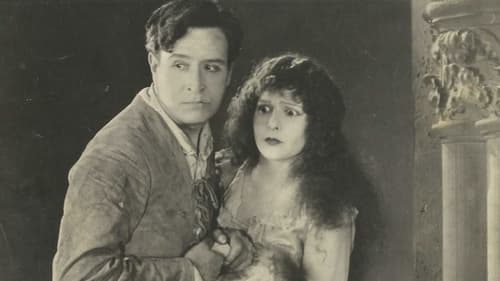
André
This historical piece, set in the Huguenot days of France, is Norma Talmadge's 37th feature film and the longest to date at two hours. The plot involves a man forced into servitude who falls in love with the sister of his persecutor. It was Ms. Talmadge's fourth involvement with director, Frank Lloyd and the cast included future star, Wallace Beery.
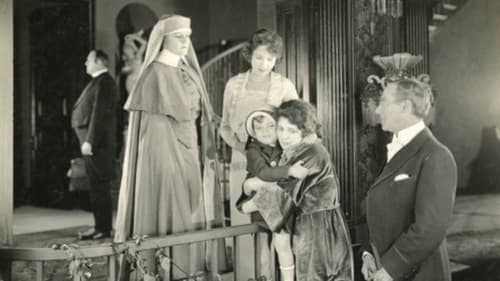
François
The Mask 1921 film

Dick Sayre
The original film featured the then unknown Rudolph Valentino. To cash in on his rise to stardom, it was re-edited to feature more of him. Various shots were repeated several times; long shots were blown up into close-ups and inter-cut with other footage; some scenes were projected on a loop, so that Rudolph Valentino repeated the same motions several times over; one scene was used as a flashback; and out-takes from the original were inserted into the new film. In addition, the locale of the new picture was switched from World War 1 Germany to a desert island by the simple expedient of inserting shots of bathing beauties on a palm-fringed beach throughout the film.

The Weasel
A young man just released from prison can't find work because no employer will hire an ex-convict. Broke and hungry, he steals money off of a painter. The painter, however, takes pity on him and decides to help him get his life back together.

Col. Follis Curmew
Upon finding themselves in financial difficulties because of the failure of the Edgerton-Tennant Company, New York socialites Diana and Silvette Tennant decide to work as society hostesses.

Joseph Dumont
A priest hears a murderer's confession but can't reveal the truth, even though his brother is being tried for the crime.

Oliver Hambledon
Walking aimlessly in the desert, crazed by thirst and hunger, Lucy Mannister and Gaston Sinclair are overtaken by her husband George, who has pursued them around the world.

William Hale
Lumberjack Gaston Olaf is newly arrived in the lumber camp of Havens Falls, but it isn't long before he finds himself coming to the rescue of the lovely Rose Havens, who is being pursued by the nasty Lefty Red.
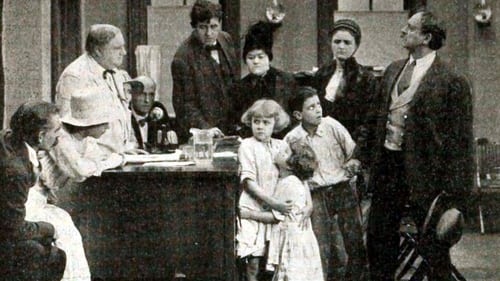
John Banning
Forced by the death of her mother to care for her three brothers and sisters, little Mona Fairfax is known to farmers of her district as Young Mother Hubbard. The children's step-father, heavily in debt and tired of the burden imposed by the little family, abandons his farm, leaving the children, penniless, to shift for themselves. The following day Daniel Banning, a wealthy "country gentleman" and owner of the Fairfax farm, calls to collect back rent. He finds Mona and her children panic-stricken over a note left by their step-father, telling of his decision to leave. Banning turns a deaf ear to Mona's pleas that she be allowed to remain on the farm with her wards. He notifies the Children's Welfare Society. Directors of the society go to the farm, load them into an automobile, and take them to the society's headquarters. At headquarters the chairman calls for volunteers to take the children into their homes.
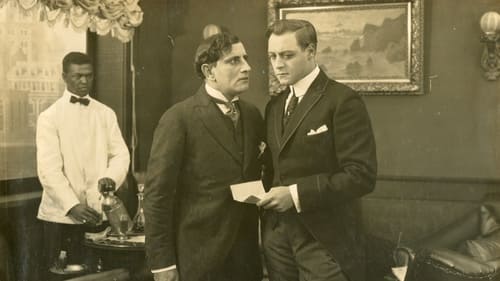
Roger Hapgood
Greek Conniston, after living a life of ease and comfort, is forced by his millionaire father to get a job and earn his own living. While traveling West with his friend Roger Hapgood, Greek meets Argyl Crawford and, entranced by the girl, takes a job on her father's ranch.

Hal Curtis
During a violent disagreement, a miner strangles his partner and accidentally shoots the man's wife. He then deserts his own wife and son to elope with the saloon keeper's daughter. As they are fleeing, the girl discovers the deed and insists upon caring for the baby found in the dead wife's arms.

Gabelle
At the outbreak of the French Revolution, Charles Darnay goes to Paris to rescue an imprisoned former family servant. He is himself imprisoned and condemned by the revolutionary forces there. His wife, the former Lucie Manette, is secretly loved by a gentlemanly wastrel, Sydney Carton. Carton embarks on a daring plan to save the husband of the woman he loves.

Richard Ainslee
Peggy Ainslee, the daughter of a wealthy broker, tires of the empty life of society, and determines on a mission of charity and uplift in the poor quarters of New York City

Bruce Powell
Margot is the pawn in a game set up by her father, "Old Bill" Prewitt, and her husband, Tom Sloan. They use her to fleece gamblers until a gun fight results in serious injuries for both Tom and Bill. Bill thinks Tom is dead and takes Margot across country. He finally collapses from exhaustion and they are found by a trapper.

Sir Jasper Thorndyke
Dorothy Cruickshank is secretly in love with Captain Westwood, whom her parents have never seen, and they plan to elope. Her father, an old sea captain, has quarreled with a Professor Jogram, following a public denunciation of a book Jogram has written on navigation.

Marjorie's Father
Franklyn Starr, a talented and wealthy young musician, suffers a double misfortune in the sudden loss of his hearing and in the death of his Mother to whom he is deeply attached. He loses his generous, joyous nature and transforms into a gloomy and despondent misanthrope.

Major Christopher Bingham
Lt. Col. Anstruther vies for the attention of Muriel Mannering with Major Bingham. The latter tricks Anstruther into believing that the girl loves Bingham, when in reality she has refused the major's proposal of marriage. When Anstruther saves Bingham's life during the Boer war, the deceitful major finally tells the truth.

Clifford
Bain is in love with Alice, the niece of his employer Mr Borrow. However, Alice is already happily engaged to Clifford. When his boss dies Bain starts working for his brother William Borrow. When Bain sees Alice again jealousy drives him to plan Clifford's murder. He pays Cochise, an Indian, to do the dirty work, but Cochise kills William Borrow instead of Clifford. Clifford is suspected of the murder and will be hanged. However, Cochise confesses his crime when he is rescued from drowning by Alice. Clifford can be released on time.

Jack Ford
O lobisomem (1913) é um filme de curta-metragem mudo que é considerado o primeiro filme de lobisomem. Foi dirigido por Henry MacRae, produzido pela Bison Film Company, e lançado pela Universal Studios. O roteiro é de Ruth Ann Baldwin, baseado no conto “The Werewolves (Os Lobisomens)” (1898) de Henry Beaugrand. É considerado um filme perdido, todas as cópias supostamente teriam sido destruídas em um incêndio de 1924 na Universal Studios.

Lt. Hurd
Colonel Crewe, in charge of a fort near the Mexican border, receives word that some Chinese are about to be smuggled across the line. He details Lieutenant Hurd to attend to the matter. Hurd, with a few soldiers, succeeds in capturing the Chinese, among whom is a Christianized girl, Moon Chew. She falls in love with Hurd.

General Sheridan
A re-enactment of Gen. Sheridan's ride from Winchester Cedar Creek to rally retreating Union soldiers and defeat Gen. Early. A love story involving the general is also told.

George Willis
John Dayton is shot by George Willis in a saloon quarrel. The deed is seen by Arline Marsdon, who gives Willis money and a marked timetable, whereby he escapes and goes further west. Mrs. Dayton is determined to bring the murderer to justice and engages the services of Craig Burton, a detective.
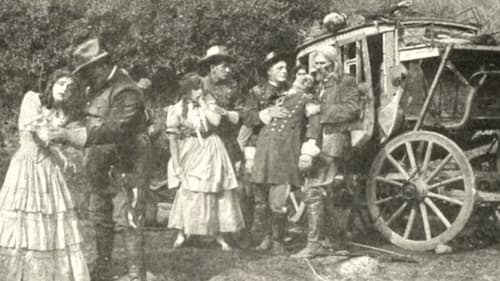
American Indian Buffalo Big falls in love with the daughter of Colonel Sherry.

The Captain
A deserting soldier encounters a wagon train of settlers. When they are faced with an Indian attack, he risks court martial to return to the Army post for help.

Joe Fuller - the Outlaw
Joe Fuller, the outlaw and bandit, draws rein at a humble cottage and begs refreshment. The traditional hospitality of the west is at once shown him by Jane White, who is alone in the house at the time, with her baby daughter. The bandit is given food and drink, while he is eating which, the baby takes a child-like fancy to him.

Dick
Dick, an easterner, comes west to try his luck at mining. No sooner does he arrive than Hartley, the local gambler and all-around villain, commences to make sport at his expense. Dick endeavors to bear it patiently, but a clash is inevitable, until the arrival at the village store of Mary Brown, one whom all held in respect, excepting Hartley.

John Burton
John Burton, a railroad clerk from the east, was spending his vacation hunting in the wild lands about John Walsh's shack. One morning, as he was eagerly following a large hawk, which he had already wounded, he lost his balance on the edge of a cliff and plunged down to the stony ground below. His cries for help attracted Walsh's attention and he was taken to the latter's cabin, where he was tenderly cared for by Walsh and his wife, until he was able to return to his duties in the east. Walsh's wife was the apple of his eye, but, like most things that we love, she did not last, and twenty years later we find him a broken old man, living in the days that are gone.

Jose
Mary lived with her mother at the XX ranch, which was on the Rio Grande, just across from Mexico, and, as there was a ford there, it was easy for persons to cross from either side. One day, while riding on the Mexican side, she heard screams of distress and came upon Juanita, a beautiful Mexican girl, who had been insulted by Jose, a bad man of that vicinity, who commanded a band of guerrillas, who plundered and stole under the guise of insurrectos.

Bob Ford
Mary Jane had nursed Black Bill's wife through a spell of fever and Bill was grateful with all the fullness of his rough nature. He sent Mary Jane a necklace and a note in which he promised on his honor to someday discharge his debt. It happened later, that one of Bill's horses was stolen. Bill and his friends found the thief, and were bringing him into town to a handy tree, when they passed Mary Jane, drawing water from the old well. Bill had a drink and Mary, in pity, raised the cup to the lips of Bob Ford, the horse thief, whom she had never seen before.

Robert Burton
Robert Burton was an only son and his indulgent mother had spoiled him. Bob was not all bad, but he was woefully weak and could not stick long at any one task. Also he paid more attention to rolling cigarettes than he did to his work. One day he was discharged by the foreman of the crockery store where he worked and appeared at home disgusted and sullen. His mother tried to comfort him, but the boy was anxious to have his way and announced his intention of going west, where he thought there would be better opportunities for him.

Jack Burris
Edith Gates, whose father runs the X.Y. Ranch, has a burning desire to become a newspaper woman, but it is not so easy to accomplish as she imagines. She is turned down by one editor after another, and finally is insulted in the office of the "Blade" by Jim Ford, who is one of the star assignment men. Jack Burton, a cub reporter, comes to Edith's assistance, and is discharged for his gallantry. Edith returns to her home, and Jack secures employment on the "Express," the deadly enemy of the "Blade," where he "makes good." A month later the "Limited" is held up and the bandits escape.

Travis
A lost silent film depicting the battle of the Alamo. Filmed in San Antonio.

Hal Lloyd
It was April weather on Lloyd's ranch, but all was not sunshine. The mortgage was due, and while there were enough cattle to sell to pay it, they were woefully short of men to handle them. Finally Lloyd decided to entrust the job to his son, Hal, and detailed El Paso Pete, one of his trusted men, to accompany the boy to Waco. The cattle were rounded up and shipped. Hal sold them to advantage and collected the money and was on his way to settle the mortgage, when he ran into an adventure. Jim Dempsey, a rough gambler, was having an altercation with his daughter, Rose. A Texan will ever respond to the call of beauty in distress and, regardless of the relationship, Hal interfered and followed them to see it safely through. He was led to a dance hall and was surprised and somewhat disappointed to see that Rose was a dancer there, but discovered that her father forced her to thus earn her living.

Indian Chief
Desdemona was not the only woman to have trouble over a handkerchief. It occurred to Mary also. Mary was in love with Bill, who worked on her father's ranch, and was greatly admired by all the boys. Shorty returned from town one day with a fine checkered handkerchief, which he proudly placed about his neck, strutting in front of Bill to attract his notice. The handkerchief was almost loud enough to speak for itself, so Bill noticed it all right. One of the boys sneaked it from about Shorty's neck and hung it on a nail, where Mary found it. Seeing that it was new, she placed it about her own comely neck, but alas, Othello Bill became jealous and accused her of accepting it from Shorty.

Bob Ford
Jack Robbins is a gentleman bandit. For months he has been hunted in vain by Bob Ford, the sheriff. Mary Gray, a young lady physician, comes west; Robbins befriends her and, not knowing him to be a bandit, she admires him. One day the sheriff gets close enough to Robbins to seriously wound him and he is in desperate straits. By accident Dr. Gray finds him and he becomes her patient.

Jack Mason
Old Watson the prospector is the proud owner of a mine and a daughter, Ruth, but when Jack Mason, the gambler, comes to town and opens a faro game, Old Watson loses all his money and mortgages this mine to Jim Sanders, a sneak. Ruth Watson accidentally meets Jack Mason and, now knowing his business, she falls in love with him, and Jack, who has a big vein of genuine manhood in his character, loves the trusting little western girl in return. Finally, Old Watson comes home with ruin staring him in the face. He has lost his last dollar.

Rob
Mary is only the assistant housekeeper of the ranch, but she has a heart as big and faithful as a queen's. Bob, who has been turned from home by his uncle because he has his own notions of marriage, comes to the ranch and Mary falls in love with him. Bill Rank, the foreman, contrives to ruin Bob's good name and make him "do time." Mary is faithful to Bob and makes a big sacrifice to help him in his trouble. Times are dark for a while, but Fate works things out at last. Bill Rank is hurt in a runaway, and, looking death to the face, he confesses the truth. Bob's good name is restored, he marries Mary, and, to cap the climax, he falls heir to a fortune.

Bill Sanders
Bill Sanders, sheriff of Alkali County, gets a warrant for Red Rube, the tough. He gives it to his deputies to serve, but Rube gets busy with the strong arm and makes them look like monkeys. When several installments of deputies have failed, Bill Sanders gets on the job himself. Bill not only knows how to juggle the 44 Colts, but he keeps gray matter in his skull. In going after Red Rube, he decides to rely on his brains instead of his hardware. He disguises himself as a tenderfoot, arms himself with a camera, and gets on Rube's trail. Things are warm and lively thereafter, but Sanders gets his man, and the honor of Alkali County is preserved.

Billy James
The punchers of the XL outfit are wild with joy, 'cause Mary, the idol of the ranch, is comin' home from college. Billy James is Mary's special friend, and goes to bring her from the station, but, suffering snakes! Look what's traveling with her, his nobs, "Sir Percy Granville," who owns the nearby ranch. This gets Bill's goat for a time, but Mary rides and "ropes" with the punchers, and soon shows them she is the same genuine, good-hearted Mary, and doesn't care a whoop for Sir Percy. Sir Percy insists on sticking around, however, and shows his true nature by striking Mary's younger brother, Bobby, when he defends his sister from insult.

The Foreman
"I do hate learnin', but oh! you schoolmarm!" is what the boys at the gulch said when Mary came to town; and, from "Big Bill" down to Hop Lee, the Chink, they all took to study, and to courtship. The rivalry is friendly until the new foreman blows in and takes the inside track, then "Big Bill" gets jealous. At the swell (?) reception the foreman cuts Bill out and Bill decides to "lay for him." The foreman soon discharged a greaser who later robs the paymaster and contrives to fix the blame on the foreman.

Jack the Foreman
Margie, of the "Flying B" ranch, knew it was to run across a snake in the tall Texas grass, but she did not realize that there are people who, like snakes, conceal themselves until they are ready to sting. Consequently, when a sleek looking tenderfoot asked to become a boarder at the "Flying B" Margie favored him, though her father was suspicious. Margie is soon smitten with the stranger, much to the chagrin of Jack, the foreman, with whom Margie had previously been very friendly. Jack does not get ugly over the matter, but keeps his eyes open.

The City Doctor
Nell, an independent and somewhat obstinate girl, receives an invitation to attend a dance. She asks her mother for money to buy a new dress. Her mother, a hard working woman, who has to toil from morn to night, feels that her request involves an unnecessary extravagance and she denies it. Nell answers her sharply and leaves in a sullen mood. While working in the hot, broiling sun, the mother is overcome with the heat.

Bob Ford
Bob Ford, a young college graduate and a man-about-town, self-willed and wild, who tries his father's patience and generosity by going the limit, is called to a sudden halt by the old gentleman and sent out west with his valet to work on Jones' ranch in Texas and prove to his father that he is not a hopeless renegade. Bob arrives in Texas with his valet, whom he tells to take his place and pretend that he is Bob while he, Bob, will pretend to be the valet. Mr. Jones has a very pretty daughter, Flora, for whom her father feels some anxiety about coming in contact with a young city fellow, college bred like Bob, fearing that she will fall in love with him.

Tony the Greaser
From force of habit, some might call him a "Greaser," true, he is a Mexicano; he is no more, a man of noble instinct and chivalrous nature. He falls in love with the American ranchman's daughter, and while she appreciates his sincerity, she does not return his affection for her. Tony not only loves, he respects her, and will not inflict his attentions upon her, and will not inflict his attentions upon her, neither seeking recognition nor reward.

Bill
Mary is from Boston, and she doesn't just take to the cow punchers as she would to the "rah-rah boys" of the Hub. Bill, who is a fellow of no small caliber, is looked upon by his companions as a sort of leader, feels a little miffed, but acknowledges she is the real goods and has some occasion to feel proud of herself; at the same time he won't stand for her snubs. The punchers await developments and make up their mind what can't be cured must be endured. The Captain, a classy chap, from a neighboring ranch, puts in his appearance, and asks Mary to go riding with him.

Harper
Denton, a young easterner, arrives in the gold-fields, looks about for a "find" and a partner. Entering a saloon, he partakes of some refreshment, watches the patrons of the place and studies their characters, while thus engaged a young miner, named Harper, somewhat prejudiced against easterners, engages in a quarrel with a Mexican who is about to plunge a knife into the miner when Denton seizes his wrist and wrenches the weapon from his grasp. Harper thanks Denton, and after learning the eastern man's desire to find a prospecting partner, Denton loins forces with him and they start in to work a lead and strike paying dirt.

Jack Rance
Getting his laundry from the Chinaman, "Honest Jim" spruces himself up in preparation to make a call on "Bess," with whom he is in love. Calling at Circle Ranch, her home, he finds Jack Rance making overtures to her father for "Bess' " hand. She greets Jim pleasantly, but she dislikes Jack; there is something about him which is distasteful to her and when her father intercedes for him she leaves the porch and hurries into the house. She does not have to wait very long to see "Jim" and "Jack" in their true colors and make a choice between the two. The clergyman of the ranch settlement and the .surrounding country comes to the post office where a crowd of cowboys are gathered to receive their mail.

Lord Wyndham
After graduating from an Indian school where he has acquired an education and schooling in the ways of the white man. Ta-wa-wa, a young Indian, returns to his native territory and far western home. On the way to the tribe's encampment he stops at Vail's ranch, meets Kawista, his boyhood sweetheart, who greets him cordially and with a frank admiration for his gentlemanly appearance. While they are exchanging greetings the postman enters and hands a letter to Mr. Vail from Col. Leigh, an Englishman, stating that he will visit the ranch with Lord Wyndham, an English lord who expresses a desire to see a real Indian powwow.

Steve Benson
When our picture opens, Joe Flynn, a rider in the service of the government, has been shot from ambush by a masked man and is dying. Grouped at his bedside are his son Jack, a sturdy young man, the local doctor and the county sheriff. The old man dies and a week later we see Jack delivering the mail. The sheriff has inserted the description of the murderer in the Yuma Gulch Herald, and the country is being scoured to find him. Jack has a long and perilous ride between the two points of his route and is frequently beset with danger. Steve Benson, a desperado, who has killed old man Flynn, is living unhappily with his wife in hourly fear of having his crime discovered.

Nat Perry
A Navajo Indian has crossed the great desert, and his water bottle has been emptied. He is in a frenzy from thirst and sees mirages of water everywhere. He comes upon Nat Perry, a young settler, who is conveying his household goods across the burning sands. Perry has just taken a drink from his precious canteen when the Indian falls at his feet and implores a little water. The young pioneer heartlessly turns him over with his foot and leaves him to die.

Jose Rodriguez
Tony Valero, a lusty young vaquero, is enamored of Clarita Montes, whose father is fairly well off, as the middle class Mexicans figure. Clarita prefers Tony to her numerous admirers, but the father has selected, for his future son-in-law, a young dandy called Jose Rodreguis, who has a certain amount of money which allows him more ease than his neighbors. Jose trades upon this fact and presses his attentions upon Clarita. He bitterly resents her preference for Tony and does all in his power to belittle his rival.

The Indian
It is a beautiful morning in Indian Summer, and White Doe is out in her birch bark canoe, engaged in a fishing expedition for food. She paddles home under the overhanging trees and vines, lights the small fire in front of her tepee and cooks her primitive breakfast. The air is bracing, the birds are singing, life is free and good. Also White Doe is happy for she had caught a gleam of admiration in the eyes of a stalwart cowboy, when she visited a ranch a few days before with her offering of plaited baskets and the famous blankets of her Navajo tribe. She begins her work of basket weaving, dreaming the love dreams of her people and her heart singing with coquetry and the happiness of conquest, for she is also loved by a brave of her tribe, a wealthy son of a chief with a hundred horses.

Steve Ross
John Burton met Bessie Fields on her way home one day, and was for making love to her right then and there, but for the interruption of Crazy Joe, a half-witted boy, who always seemed to get in wrong. Burton was incensed, and, although Bessie protested, applied his whip to the demented boy, when Steve Ross, Bessie's sweetheart, happened along and rushed to the boy's rescue. Steve saw that Burton's attentions were not welcomed and ordered him off the scene. Next day, both went to Mr. Fields, and proposed for Bessie's hand. When Burton learned that Steve had been accepted, he rushed from the house, fired back upon it, and fled. Of two shots spent, one hit and killed Mr. Fields.

Lt. Arthur Hartley

Brown
Padre Dominguis, the village priest of a quiet little spot in old Mexico, has been on a visit to the daughter of his dead sister and is about to return to his charges. He is much surprised and more than a little pleased to find that his niece is in love with John Brown, a progressive American, who has settled among them, for the Padre is a broad-minded man and knows that Mexico needs the influx of American energy to make her a great country.

Dashing Water
In the farewell beams of evening the pioneer with his wife and child stop the prairie-schooner and strike stakes for the night. Sounds of the Indian war cry disturb the quiet calm, and seen approaching in the distance is a band of savage red men. Terror-stricken, the settler seizes his gun and stands ready to defend his family. At the first volley from the Indians' rifles he falls dead. The brave wife makes a desperate resistance to protect her child. The poor woman is quickly slain by the hostile savages, leaving the helpless babe to their mercy.

Swift Arrow
"Swift Arrow, a lithe and willowy Indian, leaving the encampment of his fellow braves, is well on his journey when he is thrown from his horse and receives a broken leg and injuries from which he is disabled and lies helpless and alone." -Moving Picture World Synopsis excerpt

A short silent film produced by Gaston Mèliès in San Antonio.




















































